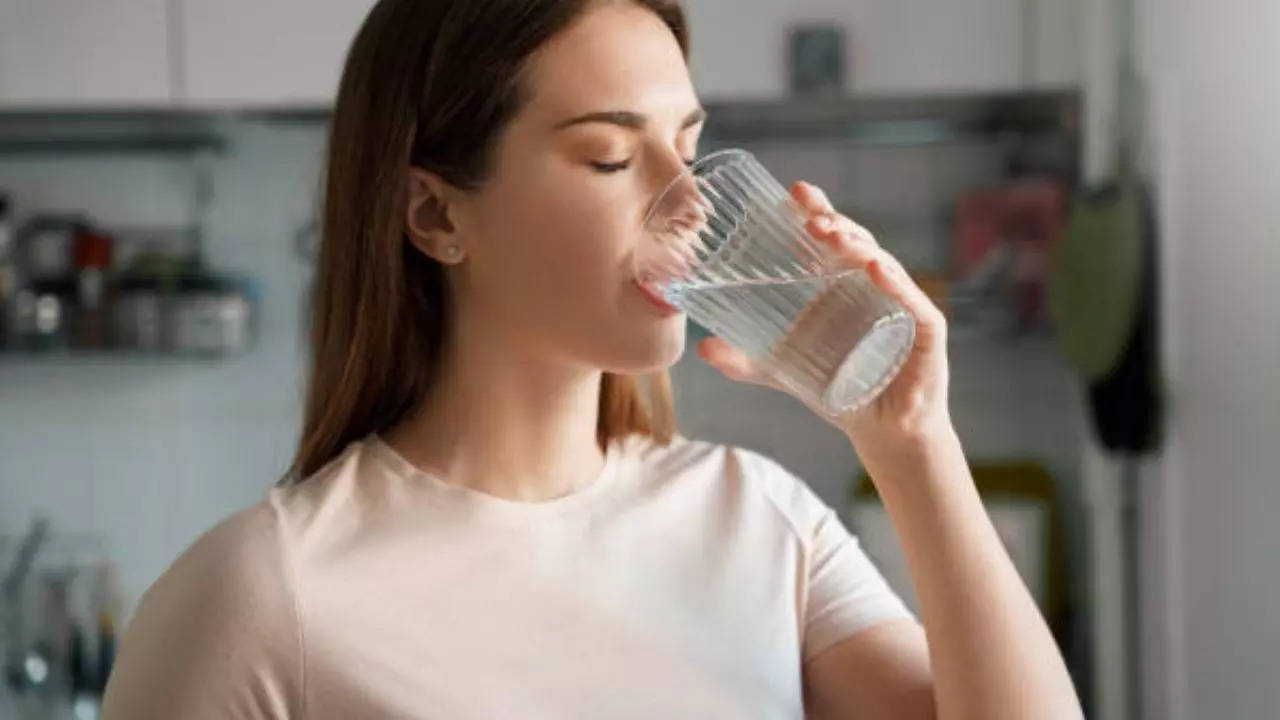-
news
-
Health
Why do we feel thirsty even after drinking enough water?
Feeling constantly thirsty even after drinking enough water can be worrying. While thirst usually signals the body’s need for hydration, excessive thirst may indicate underlying health problems such as dehydration, diabetes, electrolyte imbalance, or a side effect of medication. Read on to know more.

Why do we feel thirsty even after drinking enough water? (Image credit: iStock)
Feeling thirsty after drinking enough water can be both confusing and frustrating. While thirst is your body’s natural signal for fluid replenishment, persistent thirst can be caused by a number of factors. Thirst is a signal that your body needs more water. Although it’s normal to feel thirsty after working out or eating something spicy, excessive thirst can be a sign of a health problem. Various research shows how factors influence choice electrolyte imbalance, side effects of medicineAnd behavioral habits contribute to this sensation, even in people who consume adequate water.
dehydration
Dehydration occurs when the body loses more water than necessary, which can be caused by excessive sweating, such as through intense exercise or prolonged exposure to the sun. Other causes include diarrhea and vomiting, which result in loss of both water and essential electrolytes. Common symptoms of dehydration include extreme thirst, as well as:
– dry skin, eyes and mouth,
– Tiredness,
– Dizziness,
– nausea.
diabetes
In diabetes, the body often experiences polydipsia (excessive thirst) and polyuria (frequent urination). Due to high blood sugar levels the body attempts to expel excess glucose through urine. As this glucose-rich urine is excreted, it also takes water with it, causing increased urination. Frequent urination leads to dehydration, which leads to constant thirst.
electrolyte imbalance and thirst
Electrolytes such as sodium, potassium and magnesium are important for fluid balance. When these levels are disturbed, such as after eating salty foods, the body signals thirst, even if you have drank plenty of water. A study published in The Journal of Physiology found that increased levels of sodium in blood plasma trigger a compensatory thirst response, even when overall hydration levels appear normal. Include potassium-rich foods like bananas or spinach to balance sodium intake.
high salt diet and their role
A high sodium diet is a major contributor to prolonged thirst. Salt increases osmotic pressure, drawing water from cells into the bloodstream. Research in Nature Reviews Nephrology emphasizes that consumption of processed or salty foods may increase thirst signals, as the body seeks to restore osmotic balance. Eat a balanced diet with hydrating, low-sodium options like cucumbers or oranges to help your body maintain balance.
Medicines and their side effects
Some medications can affect hydration status and cause constant thirst. Diuretics, commonly prescribed for high blood pressure, increase urination and can cause dehydration. A study in Clinical Pharmacology & Therapeutics suggests that anticholinergic drugs, which reduce saliva production, may also cause dry mouth and excessive thirst.
Get the latest news live on Times Now with breaking news and top headlines from around the world.
diabetes


